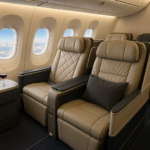Traveling alone can be an exhilarating experience, as you get to visit new places on
your terms. But it also has its own set of problems.
Some of the issues individual travelers have are unwanted attention. As a long-time
solo traveler or starting on your first solo travels, it helps to understand ways to be safe
and not cause unnecessary attention upon yourself.
Key Takeaways
● Do your homework on your destination to be in the know on local customs and
possible safety concerns.
● Pay attention to your environment and go with your gut.
● Dress conservatively and refrain from any outward sign of wealth.
● Watch your possessions and consider using a money belt.
● Keep in touch with loved ones at home and inform them of your plans.
Explaining Unwanted Attention When Travelling Alone
Unwanted attention is part of the harsh reality of solo travel, and getting acquainted with it is
key to managing it. When you’re on the road alone, you’re more easily perceived and less able
to present a united front against all sorts of unwanted attention.
Types of Unwanted Attention
Common Forms of Unwanted Attention
You could be subjected to catcalls, repeated staring, or intrusive questioning. It may progress to
serious behaviors such as stalking or harassment in extreme cases.
Solo travelers, especially women, tend to be targeted because of perceived vulnerability.
Keeping this in mind can make you take the necessary steps to avoid risks. Modest dressing,
self-confidence, and familiarity with your environment can help a great deal.
How to Handle Unsolicited Greetings as a Solo Traveler
When you are on your own while traveling, there are ways to minimize unwanted attention and
have a great time. Handling unwanted attention begins even before you depart for your travel
destination. With preparation and vigilance, you can minimize unwanted contact and have a
better time while traveling.
Preventive Measures Before Traveling
Researching your travel destination is the key to staying away from unwanted attention. Know
local customs, dress codes, and cultural traditions to prevent getting unnecessary attention to
yourself. Some nations, for example, have strict dress codes, and not following them makes you
a victim of unwanted attention. Plan and stay updated to make your journey smoother.
Dressing and Blending with Local Culture
Dressing humbly and fitting into the local environment can greatly decrease the chances of
being targeted. See how locals dress and attempt to fit in without sacrificing your sense of style.
Steer clear of bling jewelry or pricey attire and avoid drawing undue attention to yourself.
Body Language and Confidence Techniques
Consistent assertive body language will act as an adequate deterrent for probable harassers.
Head high, alert posture, and refrain from appearing to look lost and hesitant. As stated,
self-assurance has great powers to keep undesirables away. Mindfulness in bodily conduct may
make one safer as well as feel safer in such journeys while travelling alone.
Responding to Unwanted Advances and Harassment
As a lone traveler, having the readiness for unwanted advances or harassment can mean a lot
during your trip. Even with the best intentions to steer clear of unwanted attention, there are
moments when you would need to reply accordingly.
Setting Clear Boundaries
Establishing boundaries is an important part of dealing with unwanted advances. You can do
this by making it clear to the harasser that their behavior is not wanted. Speaking firmly can
make your point clear. For example, you could say, “I appreciate your interest, but I’m not
interested in taking this further.” Being assertive and direct can usually stop further unwelcome
behavior.
Cultural Differences and Appropriate Responses
Cultural awareness is also important in deciding how to deal with unwanted advances.
Something that would constitute harassment in one culture could simply be a friendly gesture in
another. Knowing such subtleties can assist you in framing your response accordingly. For
instance, in some cultures, a firm but polite denial would suffice, whereas in others, a stronger
approach is called for. Learning about the local culture before your visit can prepare you for
such an event.
When and How to Seek Help
If the incident gets out of hand, it is important to know when and how to call for help. You must
not be afraid to approach local authorities or your nation’s embassy if you are threatened or
harassed. It is also advisable to report your situation to your accommodation provider or a
known local, as they can provide assistance or advice. Preparation and knowledge of the
available resources can go a long way in managing unwanted advances or harassment
effectively.
Conclusion
As you have learned, managing unwanted attention as a solo traveler involves a balance of
preparation, vigilance, and assertiveness. Through awareness of the types of unwanted
attention you are likely to experience and taking proactive measures, you can reduce risks and
have a safer, more enjoyable travel experience.
To further increase your solo travel safety, be sure to stay aware of local customs and cultural
norms, dress modestly, and be assertive in your interactions. By following these traveling solo
safety tips, you can steer clear of unwanted attention while traveling and enjoy your adventures.
Finally, your comfort and safety are the most important. With the right approach and ideas, you
can confidently handle the challenges of traveling alone and maximize the moments in between.
FAQ
❖ What are some typical forms of unwanted attention that solo travelers encounter?
Independent travelers, especially women, can face all sorts of unwanted attention, such as
catcalls, gawking, repeated questioning, and in some instances, more intrusive actions like
tailing. Knowing these behaviors beforehand can prepare you.
❖ How can I reduce unwanted attention while traveling alone?
To minimize unwanted attention, research your destination to understand local customs and
dress codes. Dressing modestly and blending in with the local culture can also help.
Additionally, maintaining confident body language, such as keeping your head up and being
aware of your surroundings, can deter potential harassers.
❖ What should I do if I encounter unwanted advances or harassment while traveling
solo?
If you find yourself subjected to unwanted advances or harassment, establishing clear
boundaries by firmly but politely informing the harasser that their actions are not welcome can
work. Cultural awareness can also assist you in adapting your response accordingly. If the
harassment gets out of hand, know when and how to call for assistance from local authorities or
your home country’s embassy.
❖ Are there any particular safety tips for solo female travelers to prevent unwanted
attention?
Single female travelers can be cautious by not traveling alone in the evening, hiring reputable
transport services, and remaining in areas with adequate lighting and people around. Remaining
in touch with family and friends at home and sharing your itinerary with them also promotes
safety.
❖ How do I remain safe while traveling in public transport as a solo traveler?
When traveling by public transport, remain vigilant, keep your belongings close to you, and do
not talk to suspicious people. Use transportation services suggested by your hotel or tour
guides, and do not travel in vacant or deserted areas.
❖ What are some resources available for solo travelers who experience harassment
or unwanted attention?
Independent travelers who are subjected to harassment or unwanted attention can turn to local
authorities, their home country’s embassy, or travel support organizations. Some countries also
have tourist information offices or traveler assistance programs that will offer assistance and
support.
Muhammad Haseeb
















4 responses to “Handling Unwanted Attention When Traveling Alone”
Этот бот способен найти информацию о любом человеке .
Укажите имя, фамилию , чтобы получить сведения .
Бот сканирует открытые источники и цифровые следы.
актуальный глаз бога
Результаты формируются мгновенно с фильтрацией мусора.
Оптимален для анализа профилей перед важными решениями.
Конфиденциальность и точность данных — гарантированы.
Этот бот поможет получить данные по заданному профилю.
Достаточно ввести никнейм в соцсетях, чтобы получить сведения .
Система анализирует публичные данные и цифровые следы.
глаз бога
Информация обновляется мгновенно с проверкой достоверности .
Оптимален для анализа профилей перед сотрудничеством .
Конфиденциальность и актуальность информации — гарантированы.
I’m often to blogging and i actually admire your content. The article has really peaks my interest. I am going to bookmark your site and maintain checking for brand new information.
I loved as much as you’ll receive carried out right here. The sketch is tasteful, your authored subject matter stylish. nonetheless, you command get got an edginess over that you wish be delivering the following. unwell unquestionably come more formerly again since exactly the same nearly very often inside case you shield this increase.